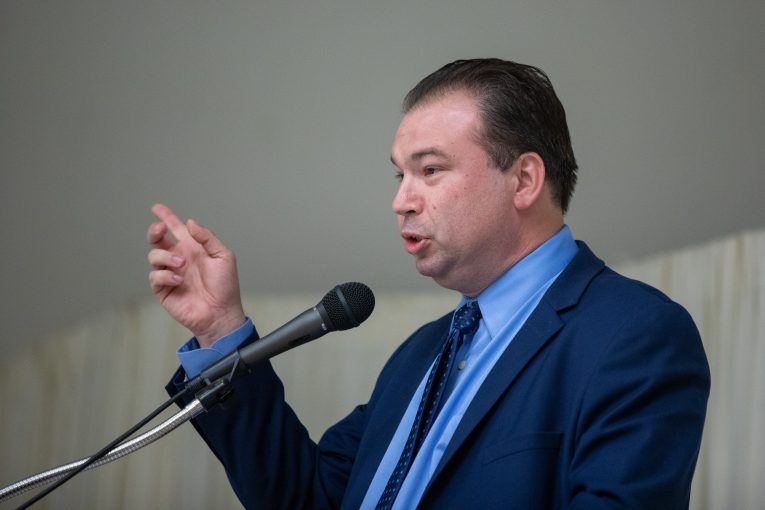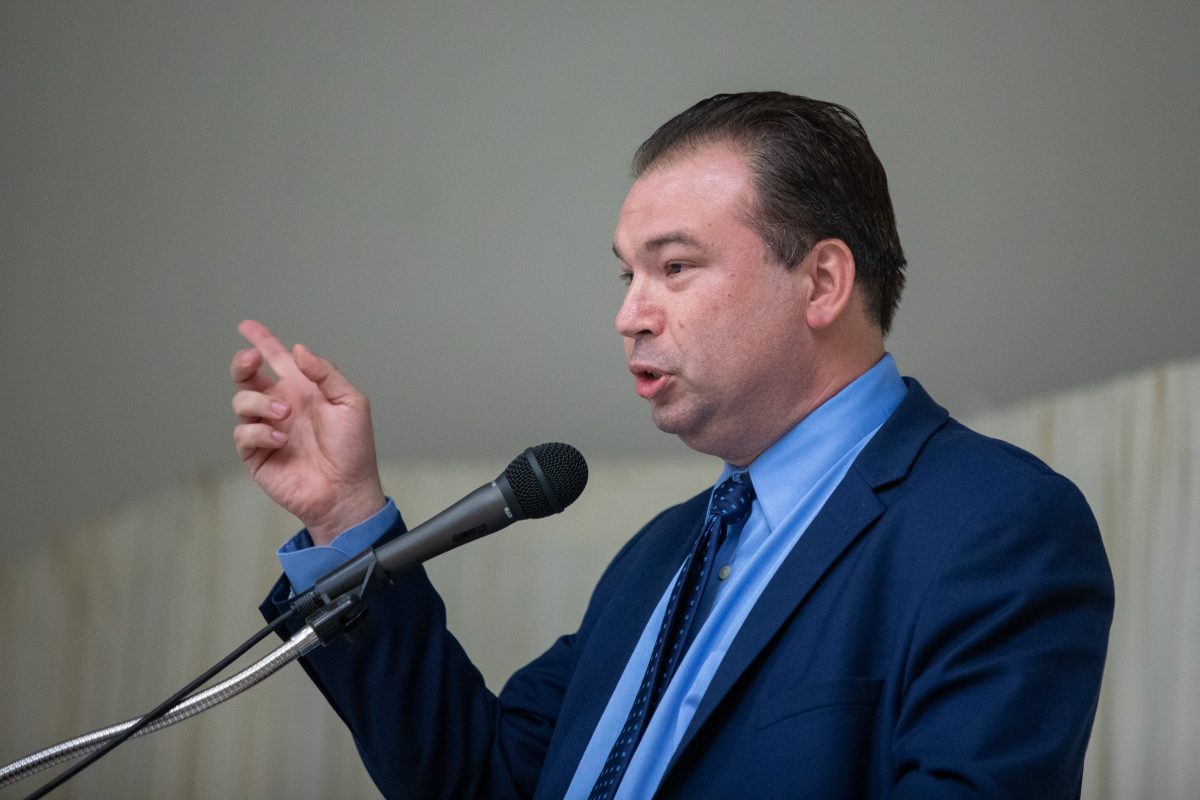

by Jeffrey Deskovic
Last Wednesday morning saw the presentation of some startling testimony by now retired Eastchester Police Detective Astorita upon cross-examination by Defense Attorney Roberto Finzi in the Selwyn Days alleged double- homicide. Under intense questioning by attorney Finzi on cross-examination, Astorita acknowledged that following an initial five hour round of interrogation during which there was no video or audio recording nor any written notes taken, there then followed a second round of interrogation that was videotaped but was however preceded by a period which, he initially claimed, was fifteen to twenty minutes, again with no audio or video recording nor handwritten notes. However, immediately confronted by Finzi with his prior testimony, the witness was compelled to withdraw his estimate and acknowledge that it was not twenty minutes but closer to an hour. Following that concession, Astorita laughed, and said off-handedly, “You got me counselor,” followed by the suggestion, “It was a long time  ago.”
ago.”
Pursuing the fact that there had been five hours and then another hour of unrecorded interrogation, Finzi queried, “You wanted to hear how he’d answer before you memorialized it?” Astorita curtly responded, “Yes.”
Having raised some serious issues with respect to interrogation tactics, Finzi now turned to another line of questions intended to demonstrate the numerous known inaccuracies in Selwyn Days’ statement, in an effort to demonstrate that Astorita and his partners should have recognized that the confession was false. Astorita conceded the following: Days said he used the side door to access the house, when in fact there was no side door; Days said he “popped open the door,” yet, there were no signs of forcible entry; Days said he kicked the dog, yet post mortem examination revealed no such injury; Days said he washed the blood from his hands in the sink, but there was no evidence of blood residue in the sink; Days stated he had driven his car to Delaware and “lost it,” yet, despite a police search, no car ever turned up, nor were they able to confirm his presence in Delaware.
Sensing that he had Astorita on the ropes, and wishing to demonstrate that he and his fellow officers had failed to do a fundamental aspect of interrogation, namely establishment of a claim within a confession that could be independently corroborated, Finzi now asked, “What did he tell you that you didn’t already know that you verified?”Astorita, appearing a little taken aback by the question, now paused before feebly citing a number of locations that Days claimed to have visited, none of which proved any previously unknown element of the crime, nor were they able to prove Days had been there. In an attempt to bolster his faltering testimony, Astorita now volunteered what he called other details that Days supplied: that Harris’ home health aid had been killed second, and that Harris had been sitting up when Days came into contact with him; that Harris used profanity upon seeing Days which Astorita claimed was consistent with Harris’ personality; that Days had not previously cased the house prior to entry; and that the home health-aid had surprised him, “coming out of nowhere.” Finzi, immediately recognizing that each of the “revelations” were unverifiable and therefore did not constitute unknown details despite Astorita’s attempt to pass them off as such, now lowered the boom one item at a time, establishing that it was impossible to confirm any of those details, and they were virtually meaningless by way of establishing a genuine confession.
On redirect examination, Ada Shristine O’Connor, attempting to obfuscate the exposed lack of corroborative effort by Eastchester Police while at the same time rehabilitating her witness’ credibility, now inquired of Astorita as to whether Mr. Days had mentioned a knife and a rope. Receiving an affirmative response, she then proceeded in a different direction.
Apparently concerned that Finzi had made a convincing argument for the fact that Selwyn Days had been fed information in the six hours of interrogation prior to the videotaping, she now asked, “When Mr.Days mentioned entering the house through the side door, you didn’t stop and correct him, did you?” Of course, Astorita quickly responded, “No.” She then asked similar questions regarding a number of other mistakes made by Days in his statement which were not corrected, to which Astorita repeatedly responded, “No.”
Analysis
Conducting an interrogation prior to turning on recording equipment defeats the whole point of recording: to make a complete and accurate record of who said what and when. It is obvious that Detective Astorita and his colleagues did not want their preparation of this defendant for videotaping to be memorialized, out of concern that it would reveal both coercive and instructional tactics. The one moment in this cross-examination that was startlingly candid was Astorita’s admission that, in fact, they wanted to be certain of exactly what he would say before they rolled the camera.
Astorita’s deliberate failure to take any notes, during a total of six hours of prior interrogation, represents a deviation from good police practices.
In this reporter’s opinion, former Detective Astorita’s testimony was not credible.
Ada O’Connor’s attempt on redirect with respect to the knife and the rope was surely blunted by the fact, firstly, that Astorita and company had been interrogating him without recording it for six hours prior to his ‘statement,’ and further, the exposure of the details by the media nearly five years earlier.
Similarly, O’Connor’s trying to suggest that there were no police suggestions to Days, by pointing out that the police didn’t correct him when he got details wrong, is disingenuous given the fact that it was then videotaped.
Days’ numerous errors were proof positive that his statement did not constitute a truthful confession.
This testimony demonstrates that even well-intentioned legislation mandating video recording of all police interrogations is not adequate unless it specifically requires start to finish recording in real-time.
